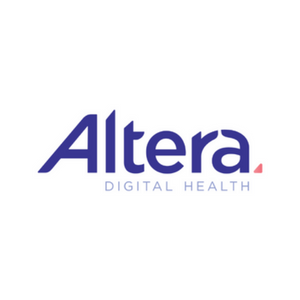As an exhibitor for the Healthcare Excellence Through Technology (HETT) conference in September, we caught up with Paula Ridd, General Manager (UK&I) at Altera Digital Health to discuss creating healthier, active, and connected communities.
HETT: Thank you for taking the time to speak with us Paula. Tell us a bit about how your organisation currently supports the health and care sector.
Paula Ridd: Altera Digital Health, formerly known as Allscripts, is a proven, global leader in healthcare information technology solutions that advance clinical and operational outcomes. In partnership with our clients, our Platform of Health and care, based on Human-Centred Design, provides visibility into the entire patient record enabling a more connected care experience, better clinical insights, and safer, efficient, and joined-up care across an ICS.
Our solutions are easy to implement and user-friendly, which means rapid benefits for you and your patients and a fast, flexible, and clinically driven roadmap towards digital maturity across your ICS. Most well-known for our Sunrise™ EPR, we connect people, places, and data, helping create healthier, active, connected communities.
HETT: What are some of the biggest challenges that you have identified when working closely with your NHS/Care partners?
HETT: Tell us how working with your products and solutions can help tackle some of the challenges that exist within digital health.
Paula Ridd: We’ve been pioneering open data for more than 15 years and actively promote integration with other providers. We support seamless information sharing across our solutions, and with those created by other suppliers. It is this approach that will help healthcare providers tackle the most pressing challenges they are facing such as integrating care across regions, reducing waitlists, enabling interoperability, increasing efficiency and delivering safer care.
Through the provision of Sunrise EPR, and our suite of integration tools we’re able to help trusts who are less digitally mature take the steps towards clinically led digital maturity, at a pace that suits them.
As our solutions are modular and open, we never push our clients to rip and replace systems for the sake of it. Instead, we ensure our systems wrap around what currently exists to enable progress to be made more rapidly.
Our solutions also flex to the needs of the trust—be that in terms of implementation through a phased approach, or through the configurability our systems enable. This configurability encourages our clients to find new ways to adapt the technology to help solve their pressing challenges such as freeing up clinical time using smarter digital workflows.
Health systems with multiple EPR systems often have difficulty accessing data collected by and stored in disparate systems, have slow workflows with current HIE systems and/or are looking to achieve clinical outcomes for specific patient populations.
With dbMotion™ we help ICSs bring together patient data from different healthcare settings into a single patient record that reflects all activity about a patient. We harmonise the data, regardless of IT supplier, and whether it is from an acute hospital, GP practice, or community setting. This data is then visible at the point of care and available in business intelligence EPR-agnostic tools, enabling clinicians to make more informed decisions about patients and deliver higher quality clinical outcomes.
HETT: As HETT Show approaches (27-28 Sept @ExCeL London), tell us what you are looking forward to the most at HETT Show 2022.
Paula Ridd: We’re looking forward to catching up with our current clients who are speaking at the show about their digital transformations. We’re also keen to speak to those ICSs and trusts who are embarking on their journey to procure and deploy an EPR by December next year, to meet the Government’s targets. And, of course, to catch up with the incredible leaders across the healthcare community who will be in attendance.
HETT: As HETT Show approaches (27-28 Sept @ExCeL London), tell us what you are looking forward to the most at HETT Show 2022.
Paula Ridd: It’s going to be exciting to be back and engaging face to face again with our healthcare colleagues across the sector. I’m looking forward to catching up with colleagues old and new. I’m also really excited to chair the panel session at 11.30 on day two on “a roadmap to clinically driven digital maturity.” We’ve got a fabulous and experienced panel, including Jenny Chong, Non-Executive Director at Medway NHS FT, Mark Hutchinson, CDIO at Gloucestershire Hospitals NHS FT and Dr Constantin Jabarin, International CCIO at Altera Digital Health.
HETT: Thank you for your time today Paula. It’s been a pleasure catching up with you and learning more about how Altera Digital Health contributes to the evolution of the healthcare sector. We look forward to seeing you at HETT Show (27th & 28th September, ExCeL London)!

With many thanks to Snowflake
%20(1).png?width=500&height=58&name=HETT%20insights%20logo%20RGB-04%20(1)%20(1).png)
